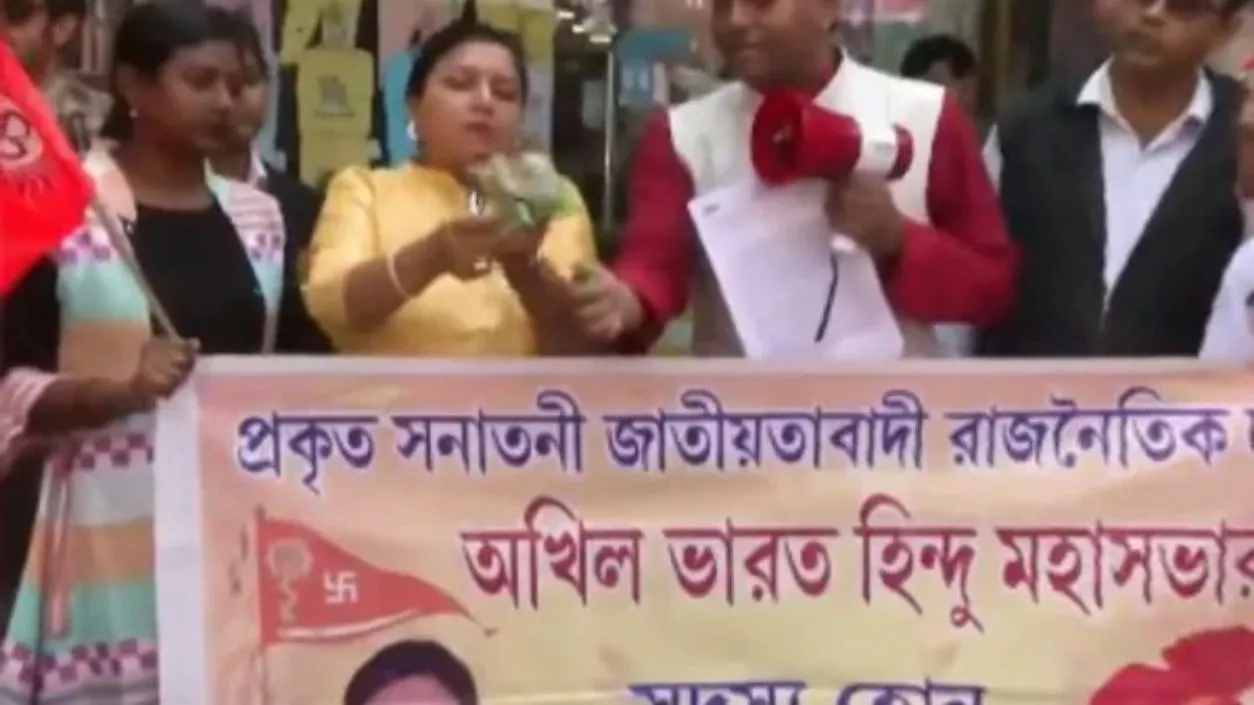.gif)
.gif)

On Friday, members of the Hindu Mahasabha in Kolkata staged a protest by destroying Bangladeshi products, including items from the well-known Pran Group, in response to a growing call for a boycott of Indian products in Bangladesh. The protestors threw Bangladeshi goods onto the streets, condemning the movement against Indian goods. The action came after a controversial statement from Bangladesh Nationalist Party (BNP) leader Rahul Kabir Rizvi, which sparked the boycott campaign in Bangladesh.
Rizvi’s actions on Thursday involved publicly burning an Indian-made sari, which he claimed belonged to his wife. Following the demonstration, Rizvi called for a nationwide boycott of all Indian goods in Bangladesh, stating that he would avoid using Indian products, even if it meant living on one meal a day. His call to reject Indian products was part of a broader anti-India sentiment, and the act of burning the sari drew significant attention.
Bangladesh is a key exporter of ready-made garments to India, with brands like Pran also selling food products and other consumer goods in the Indian market. The trade between the two countries is substantial, with Bangladesh benefiting from India's demand for textiles, garments, and agricultural products. The Pran Group, in particular, has a significant presence in the Indian market, offering affordable packaged food and other products.
India, on the other hand, exports a wide range of goods to Bangladesh, including machinery, chemicals, and pharmaceuticals. The two countries also share economic ties in sectors such as energy and infrastructure development. However, tensions over political and trade issues have led to increasing calls for boycotts of products from both countries. The rise of these boycotts could disrupt the flow of goods, affecting markets that rely on trade between the two nations. The future of India-Bangladesh trade is uncertain, as both governments work to address the ongoing tensions that could impact bilateral economic relations.